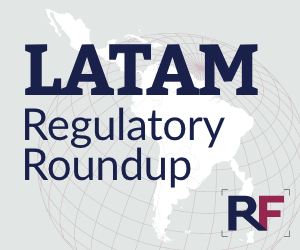Latin America Roundup: Mexico, Colombia and Cuba press for Pan-American regulatory body
 Biologics/ biosimilars/ vaccinesLatin America/CaribbeanMedical DevicesPharmaceuticalsProduct LifecycleRegulatory Intelligence/Policy
Biologics/ biosimilars/ vaccinesLatin America/CaribbeanMedical DevicesPharmaceuticalsProduct LifecycleRegulatory Intelligence/Policy Biologics/ biosimilars/ vaccinesLatin America/CaribbeanMedical DevicesPharmaceuticalsProduct LifecycleRegulatory Intelligence/Policy
Biologics/ biosimilars/ vaccinesLatin America/CaribbeanMedical DevicesPharmaceuticalsProduct LifecycleRegulatory Intelligence/Policy